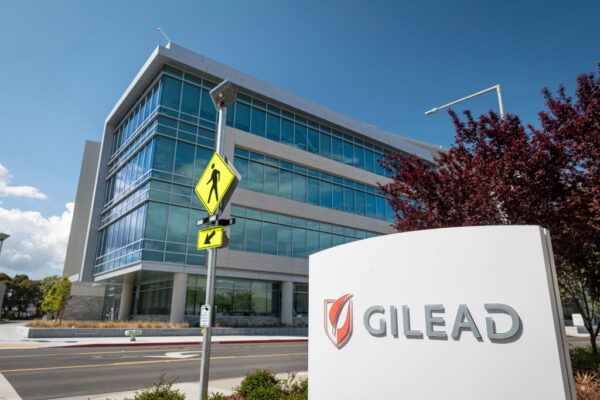
Gilead Sciences committed billions of dollars to Galapagos in an autoimmune disease partnership that has fallen well short of expectations. But the drugmaker isn’t giving up on this therapeutic area and it is now striking up a new alliance with a new partner whose technology could yield therapies for rheumatoid arthritis and lupus.
The partner is EVOQ Therapeutics, a startup whose technology takes a novel approach to preventing an immune response to a particular antigen. Specific financial terms of the deal announced Tuesday were not disclosed, but the companies said EVOQ could receive up to $685.5 million in upfront, option exercise, and milestone payments.
Autoimmune diseases develop when the balance of the immune system is tipped toward excessive activation of immune cells. EVOQ’s approach to treating such diseases involves targeting dendritic cells, antigen-presenting cells that prime immune cells toward a response of immune tolerance or immune activation. The company says its technology can stimulate dendritic cells toward an anti-inflammatory response that restores immune tolerance, a state in which the immune system recognizes the antigens of the body and does not attack them.
The EVOQ technology, called NanoDisc, is designed to enable delivery of disease-specific antigens to the lymph nodes, which are depositories of large numbers of dendritic cells. According to the terms of the agreement with Gilead, both companies will collaborate on preclinical research. The deal gives Gilead the option to exclusively license rights to the NanoDisc technology for rheumatoid arthritis and lupus. If the Foster City, California-based drugmaker exercises those options, it will be responsible for clinical development of drug candidates. If the drugs secure regulatory approval, Gilead will also handle their commercialization. EVOQ would then receive royalties from Gilead’s sales of commercialized products.
“Despite key advances over the past two decades, there remains significant unmet need for people living with inflammatory and autoimmune diseases,” Flavius Martin, Gilead’s executive vice president, research, said in a prepared statement. “We are excited to collaborate with EVOQ to further expand our autoimmune pipeline with the goal of addressing the needs of people living with these conditions.”
Gilead expressed similar sentiments in 2019, when it inked a $5 billion deal to collaborate with Galapagos on six clinical-stage drugs and 20 more in preclinical development. That deal expanded on an earlier alliance on filgotinib, which was rejected by the FDA but went on to receive regulatory approvals in Japan and Europe for treating rheumatoid arthritis. That drug is now largely in the hands of Galapagos, though Gilead will collect royalties from its partner’s sales of the product. Other partnered programs have also had setbacks. In 2021, Gilead and Galapagos stopped development of ziritaxestat in ideopathic pulmonary fibrosis after an independent data monitoring committee evaluated clinical data and concluded the drug’s benefits do not outweigh its risks.

A Deep-dive Into Specialty Pharma
A specialty drug is a class of prescription medications used to treat complex, chronic or rare medical conditions. Although this classification was originally intended to define the treatment of rare, also termed “orphan” diseases, affecting fewer than 200,000 people in the US, more recently, specialty drugs have emerged as the cornerstone of treatment for chronic and complex diseases such as cancer, autoimmune conditions, diabetes, hepatitis C, and HIV/AIDS.
Gilead is EVOQ’s second big pharma partner. Two years ago, the startup unveiled a license and collaboration agreement with Amgen covering the development of new drugs for autoimmune disorders that were not disclosed. That deal puts EVOQ in line for up to $240 million in upfront and milestone payments.
Photo: David Paul Morris/Bloomberg, via Getty Images












